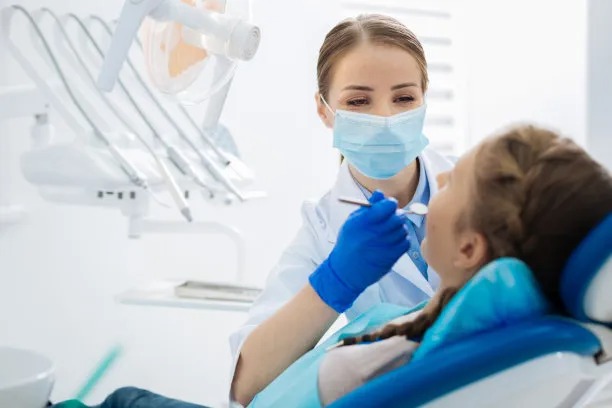Summary: The procedure of tooth extraction often resonates beyond the evident physical loss; it can reveal significant insights about an individual’s oral health. This article explores the multiple dimensions of how extracting a tooth can uncover hidden secrets. From understanding underlying health conditions to revealing plaque buildup, the physiological changes that occur post-extraction, and the relationship between dental health and systemic conditions, this article sheds light on how dentists utilize the information derived from extracted teeth. The thorough analysis emphasizes the interconnectedness of oral and overall health, providing a comprehensive understanding of why paying attention to our teeth is crucial.
1. Understanding Underlying Health Conditions

When a tooth is extracted, it often acts as a window into the patient’s overall health. Dentists can identify conditions such as periodontal disease, which may not present noticeable symptoms until they have progressed significantly. The condition can lead to tooth loss and thus necessitate extraction.
Moreover, various systemic diseases can have oral manifestations. For instance, diabetes can cause gum disease, which may lead to increased tooth decay and eventual extraction. Therefore, a dentists analysis of the tooth can help in diagnosing underlying health issues that the patient may not be aware of.
In some cases, infections from teeth can spread into the bloodstream, impacting vital organs. By extracting the compromised tooth, dental professionals can prevent the progression of such infections, emphasizing the importance of oral health in maintaining overall bodily health.
2. Plaque Buildup and Its Consequences
The extraction of a tooth frequently reveals the extent of plaque and tartar buildup. Severe plaque accumulation can lead to cavities and gum disease, indicating that the patient may not have been maintaining proper oral hygiene habits. The analysis of the extracted tooth can point out the specific areas where plaque was evidently damaging.
Furthermore, understanding plaque buildup can reveal dietary habits that contribute to oral health issues. A diet high in sugars and carbohydrates can lead to accelerated plaque development. Thus, dentists can advise on dietary changes based on their findings.
By addressing plaque issues during dental visits, rather than waiting for extractions, patients have the potential to reverse early-stage dental diseases. This proactive approach underscores the significance of regular dental check-ups to maintain optimal oral health.
3. The Physiological Changes Post-Extraction
After tooth extraction, significant physiological changes may occur in the mouth that can influence oral health. The bone structure around the extraction site begins to undergo a process known as resorption. Understanding these changes can play a crucial role in future dental treatments, such as implants or bridges.
Moreover, the healing process can indicate the patient’s overall health status. Factors such as nutrition, blood flow, and systemic diseases can affect how well the extraction site heals. Thus, dentists often monitor the recovery process closely to identify any compounding issues.
The physiological changes following an extraction dont just stop at the site; they can affect adjacent teeth, leading to potential alignment problems. Dentists can provide corrective measures and preventive strategies during follow-up visits, emphasizing the importance of understanding these changes for future dental care.
4. Systemic Health Connections Revealed
The health of our teeth often reflects our systemic health, a connection that becomes even clearer when a tooth is extracted. Conditions such as cardiovascular diseases and osteoporosis have displayed correlations with neglected oral health. An extraction can signal a critical point for assessing these risks.
Studies show that poor dental health can exacerbate systemic conditions. For instance, the bacteria from dental plaque can enter the bloodstream, leading to inflammation that contributes to diseases like heart disease. Dentists can provide insights on maintaining good dental health to mitigate these risks, especially after an extraction.
Additionally, understanding these systemic connections helps in tailoring personalized dental care. It emphasizes to patients the need to care for their teeth not only for aesthetic reasons but for their overall health considerations.
Summary:
Through the act of tooth extraction, crucial insights into a persons oral and systemic health are disclosed. Not only does it serve as a diagnostic tool for underlying health issues, but it also reveals plaque issues, affects physiological recovery, and showcases the integral relationship between oral and systemic health. Comprehensive dental care involves addressing the oral environment and its potential implications on overall health.
This article is compiled by Vickong Dental and the content is for reference only.
Vickong Dental
Vickong Dental is a large medical group established in Hong Kong in 2008 by professors from well-known medical universities in Guangdong and Hong Kong, as well as medical doctors from key national '985' universities (including Master's supervisors and senior professors). The chain of branches brings together expert dentists with PhDs and Master's degrees from Hong Kong and Mainland China, committed to providing high-quality dental treatment.
"Vickong Dental Practices the University Motto of 'Healing and Serving Society,' with a Stable Operation for Sixteen Years. It Has Been honored with Hong Kong Enterprise Leaders's Choice,' and is a Global Trusted Implant Center for the Nobel Implant System. Recommended by Hong Kong Metro Broadcast and Guangdong Television, it Serves Customers from Over Thirty Countries and Regions, Gaining the Trust and Favor of Citizens from the Guangdong-Hong Kong-Macau Greater Bay Area and Surrounding Cities.

Thousands of customers' unanimous praise
The most recognized and highly recommended dental service by customers in the Guangdong-Hong Kong-Macau Greater Bay Area
We Ensure You Receive Detailed Care and Attention Here
Hong Kong standards, Shenzhen prices, Your Trusted English-speaking dentists

Vickong Dental Medical-Grade Instrument Disinfection Process
Vickong Dental Medical-Grade Instrument Disinfection Process

Vickong Dental Chain: A Warm and Comfortable Environment for Treatment






Appointment Hours

Q&A
Why choose Vickong Dental?
Vickong Dental practices the university motto 「Medicine to Benefit Society」, with each branch bringing together highly qualified dentists with doctoral and master’s degrees from Hong Kong and the Mainland, and has maintained seventeen years of steady operation。Recipient of 「2024 Hong Kong Enterprise Leaders Brand」, 「2025 Hong Kong Enterprise Leaders Brand」, a Nobel Biocare Global Trusted Implant Center, and a brand recommended by Metro Radio Hong Kong and Guangdong TV。
To date, we have served customers from more than thirty countries and regions,earning exceptionally high word-of-mouth recognition and trusted recommendations from residents across the Guangdong-Hong Kong-Macao Greater Bay Area and surrounding cities
We have eight major branches in Zhuhai、Shenzhen,and a consultation and service assurance center in Hong Kong,so you can book a free consultation at any time for any questions,which is very reassuring.
If I do not accept the quotation after the CT scan, will I be charged??
No! As long as the actual treatment has not started, you will not be charged any fees.
Will there be any additional charges during the treatment process?
No, there won’t be any additional charges. Before treatment begins, we will clearly explain the treatment plan and its corresponding fees. Only after the patient agrees and signs the consent form will we proceed with the dental service.
Can I pay in Hong Kong dollars?
Yes. Vickong Dental accepts payment in Hong Kong dollars. The amount will be converted based on the exchange rate of the day, and the applicable rate will be clearly communicated to you in advance.
Can I reschedule my appointment at any time?
Yes. Please contact us via **WeChat** or **WhatsApp** as early as possible, providing your original appointment time and details, along with your preferred new date and time slot for rescheduling.













